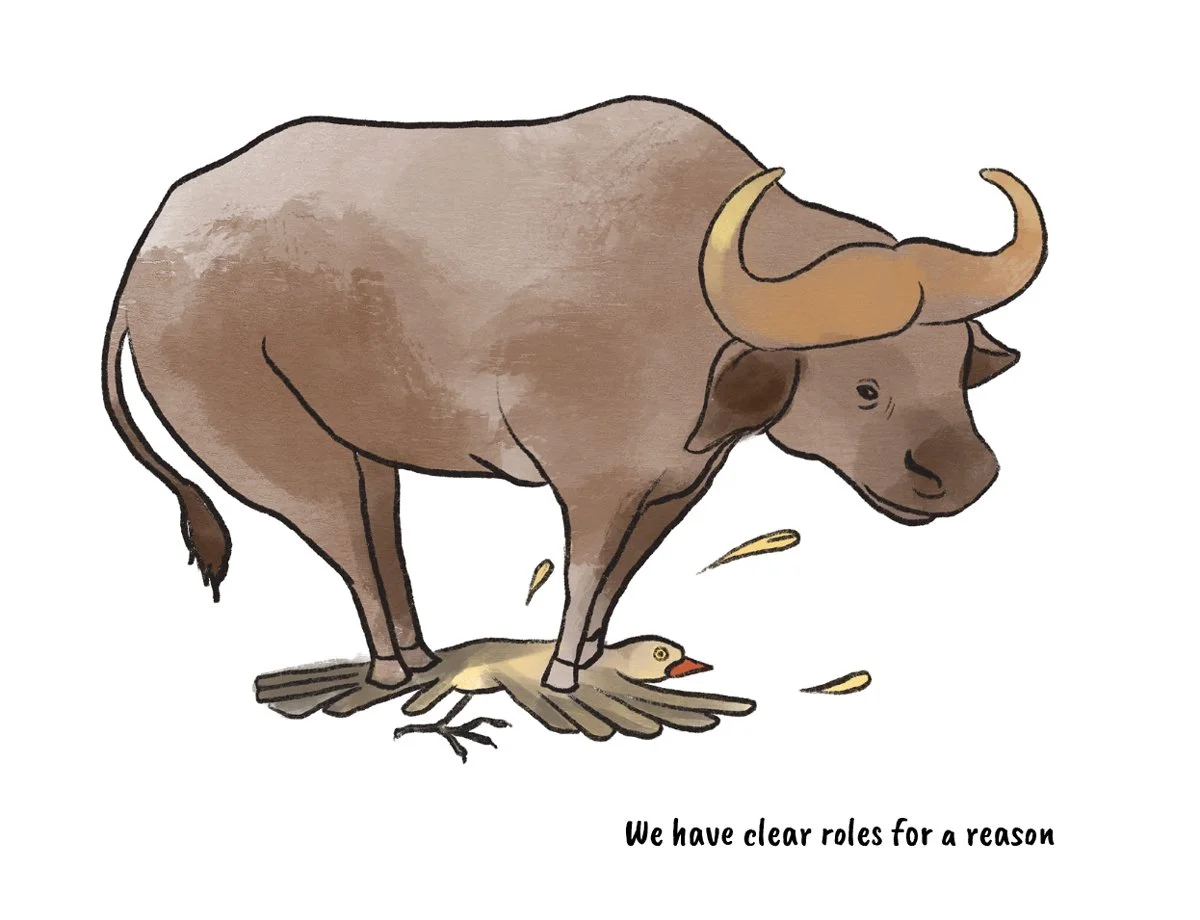“The local organization is pivotal. It is there forever. It is not like the international organization that has a limited period of time.”
—Dominic Ngwesse, Nature Cameroon
Coming soon: French and Portuguese translations.
Rooting for Change: Strengthening Local-Global Partnerships in African Conservation
Partnerships that harness the resources and abilities of different types of organizations are essential to solving all manner of social and environmental problems. In African conservation, one such critical partnership is that between local conservation organizations and international non-governmental organizations (INGOs).
Today, there is growing recognition of the key role local civil society organizations (CSOs) play in addressing climate change, biodiversity loss, and other conservation challenges. The work of these local organizations is often elevated through partnerships with INGOs, which are able to provide funding, networks, expertise, and technical resources that local organizations in Africa often struggle to access.
Yet, partnerships between international organizations and those working at the local or community level often face numerous challenges related to power relations, transparency and accountability, and alignment of interests.
This report documents the experiences of African conservation and natural resource CSOs with these partnerships. Based on an online survey, complemented by key informant interviews, this report brings out the voices and perspectives of local organizational leaders on creating effective partnerships: what they consist of, current barriers they experience, and how they can be strengthened.
88% of local African organizations agree that partnerships with INGOs are very important for their work.
82% agree that partnerships with INGOs provide critical resources.
71% indicate that partnerships with INGOs are challenging and that there are significant barriers to address.
Ultimately, these perspectives emphasize the importance of shifting the approach to partnerships from one that’s transactional and project-focused to one that develops deeper, more effective, and meaningful relationships that can catalyze true collective action and systemic change.
Key Takeaways
Principles of Effective Partnerships
According to local organizations, a meaningful partnership should be framed around the following key practices and principles:
Trust and respect
Good communication
Clear roles
Aligned values, strategies, and goals
Complementary expertise
Long-term relationships
Shared credit
Simple, supportive, and adaptive management practices
“Respect, collaboration, recognition, support.”
—Research participant
Barriers to Effective partnerships
Local organizations identify a number of barriers to achieving these kinds of partnerships with international organizations, including the following:
Unclear intentions
External agendas that don’t align with their own
Lack of appreciation for local context, knowledge, and experience
Confusion on the role of the INGO broadly and within specific partnerships
Differing expectations
Weak communication
Lack of meaningfully sharing credit
Exhausting and complicated administrative procedures
Short-term approaches
Lack of trust and respect
Power imbalances
Opportunities for Change
To overcome these barriers, local African organizations suggest these changes:
Shift from transactional to more meaningful partnerships based on shared purpose, trust, respect, equity, strategic alignment, and collaborative co-creation.
Clarify the position and role of INGOs, both broadly within the African conservation space and in specific partnerships with local organizations.
Recognize local capacity and expertise, trusting the knowledge and capability of local organizations.
Move toward more intentional ways of working that are less administrative and bureaucratic and are more adaptive, contextual, and supportive.
Place more value in local networks and support local organizations by influencing the conditions, policies, and governance processes that impact them and their work.



